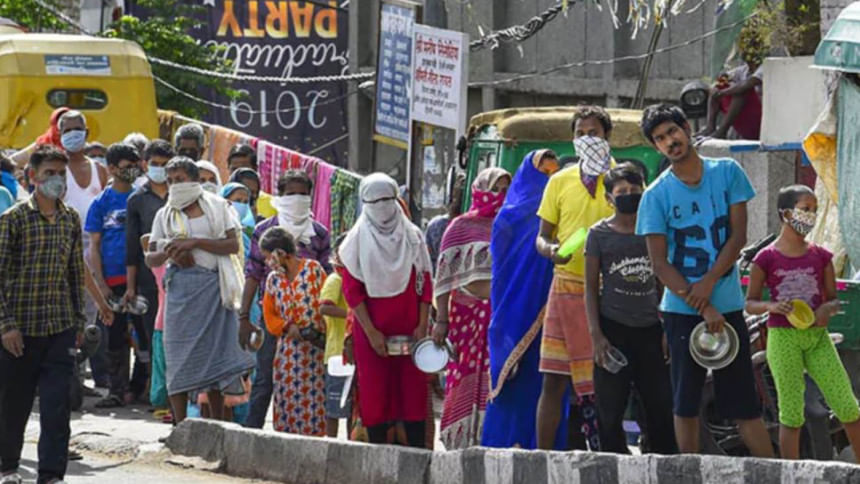Indian govt allows use of surplus rice to make hand sanitisers

India has decided to allow the use of surplus rice stored in government godowns to make alcohol-based hand sanitisers, as its demand has soared in the midst of the coronavirus pandemic.
The decision was taken at a meeting of the National Biofuel Coordination Committee on Monday under the chairmanship of Petroleum and Natural Gas Minister Dharmendra Pradhan, reports our New Delhi correspondent.
It was decided that the surplus rice available with state-owned Food Corporation of India (FCI) may be converted to ethanol for utilisation in making alcohol-based hand sanitisers as blending it with petrol helps reduce greenhouse gas emission.
India's National Policy on Biofuels 2018 envisages that during an agriculture crop year when there is a projected oversupply of food grains as anticipated by the agriculture ministry, the policy will allow conversion of these surplus quantities of food grains to ethanol, based on approval from National Biofuel Coordination Committee (NBCC).
The Indian government had recently allowed sugar companies and distilleries to make hand sanitisers using ethanol. Sugar companies supply ethanol to oil marketing companies for blending with petrol.
The Indian Sugar Mill Association had said last week that a majority of sugar companies decided to make hand sanitisers to supply to hospitals and institutions by using a part of the ethanol production.
Some of them are supplying the sanitisers at cost price or even free of cost.
According to official data, the government has a total of 58.49 million tonnes of food grains in its godowns, out of which rice is 30.97 million tonnes.
The food grains stock is much higher than the required norm of maintaining a reserve of about 21 million tonnes as on April 1 this year.
Under the National Food Security Act (NFSA), the government is supplying 5 kg of food grains per month to over 80 crore people at a highly subsidised price of Rs 2-3 per kg.
Besides, the government has also decided to distribute 5 kg of food grains per person free of cost for the next three months to provide relief to poor people during the ongoing lockdown imposed due to the Covid-19 outbreak.

 For all latest news, follow The Daily Star's Google News channel.
For all latest news, follow The Daily Star's Google News channel. 



Comments